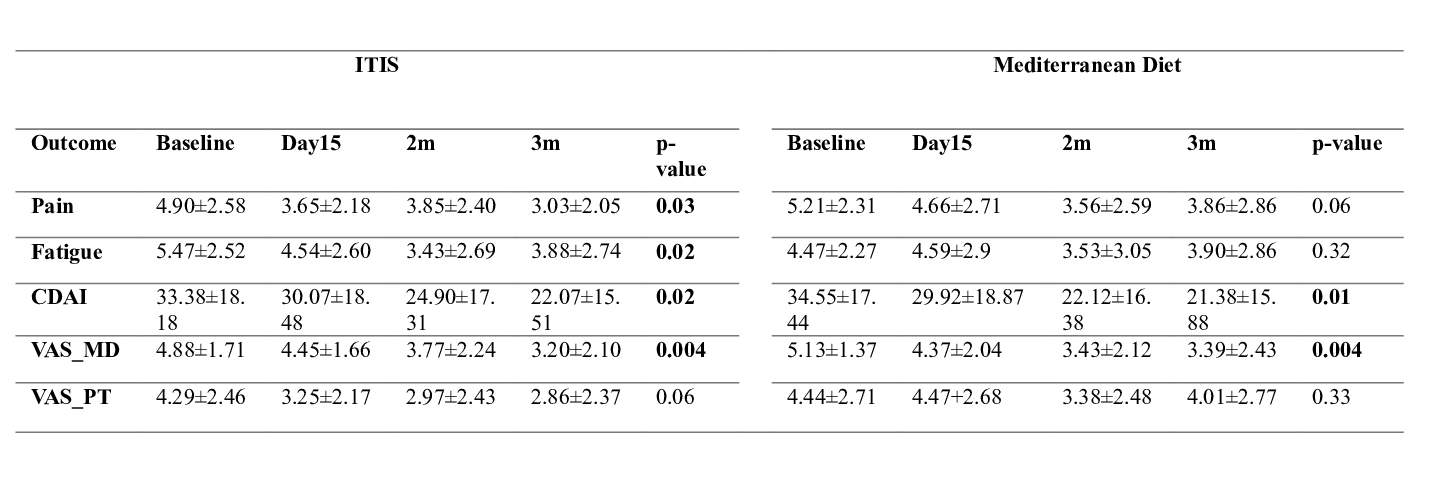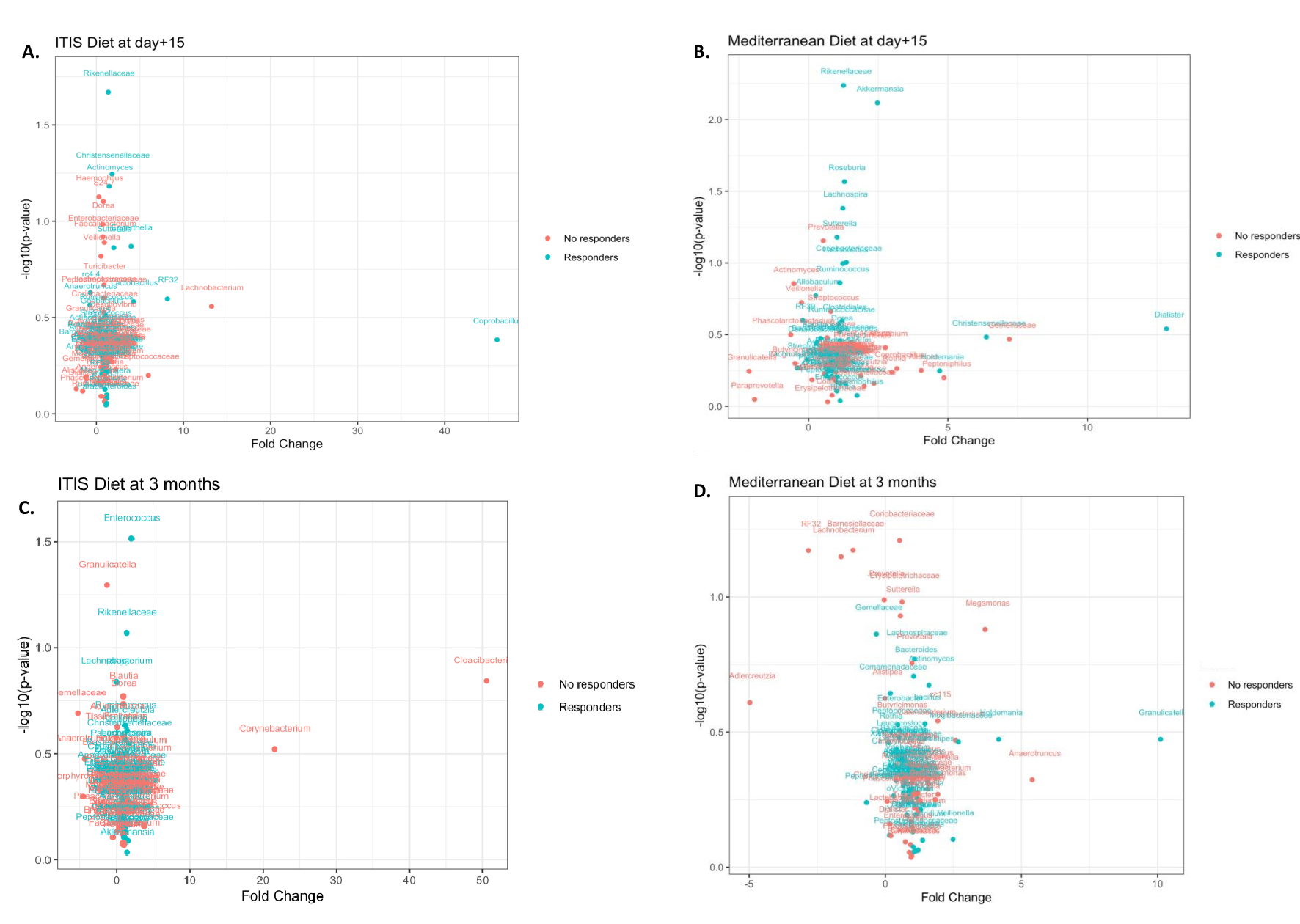Session Information
Date: Tuesday, November 14, 2023
Title: (2095–2140) RA – Diagnosis, Manifestations, and Outcomes Poster III
Session Type: Poster Session C
Session Time: 9:00AM-11:00AM
Background/Purpose: Rheumatoid arthritis (RA) is a chronic condition characterized by persistent joint inflammation, functional impairment, and disability. Adhering to a Western diet has been associated with an overproduction of pro-inflammatory mediators and a reduced release of anti-inflammatory mediators. The gut microbiota plays a crucial role in determining the metabolic response to specific nutrients and can influence the levels of circulating pro- and anti-inflammatory mediators. The objective of this study is to compare the response of RA patients following either the anti-inflammatory ITIS diet or the Mediterranean diet (MD), assessing their respective improvements in various outcomes and examining the microbiome variations associated with each dietary approach.
Methods: We evaluated the effect of either ITIS diet or the MD for a period of 3 months in an evaluator blinded randomized clinical trial. In an ongoing trial, RA patients with active disease are being recruited. Physical examination is performed at each visit, along with the collection of clinical data, data on dietary adherence, and fecal samples for microbiome analysis. 16S rRNA gene amplicon profiling of the stools was performed. A generalized linear model was employed to assess the relationship between time and diet. Microbiome analysis was conducted using RStudio to describe variations in the abundance of microbial taxa associated with different diet groups and responses, defined as patients with a 50% pain improvement.
Results: A total of 44 patients (95.45% women, age average: 52.82, standard deviation (SD): 9.42), clinical disease activity index (CDAI) average 34.55 (17.44)) diagnosed with RA were recruited for this study. The study findings revealed significant improvements in health indicators among patients following the ITIS diet and MD. Specifically, patients on the ITIS diet experienced significant reductions in pain (p=0.03), fatigue (p=0.02),CDAI (p=0.02) and visual analog scale (VAS) from physician (p=0.004) at 3 months. Patients following MD had a significant decrease of CDAI (p=0.01) and VAS from physician (p=0.004) at 3 months (Table 1). Remission was achieved by 11.11% of patients on the ITIS diet, while no patients following the MD reached remission. In microbiome analysis, the differential abundance between responders (R) and non-responders (NR) for each diet was calculated. Figure 1 shows the volcano plots representing the distribution of the relative abundance of the microbiome at baseline within R and NR of each diet after 15 days and 3 months of diet intervention.
Conclusion: Preliminary results of our randomized clinical trial show improvements in clinical outcomes for both the ITIS diet and the MD. We also observed baseline differences in the microbiome between R and NR. More patients are being recruited to further investigate the differences in clinical and microbiome outcomes between the two diets.
To cite this abstract in AMA style:
Sala Climent M, Cedeno M, Coras R, Holt T, Choi S, Singh A, Nguyen K, Lee S, Zuffa S, Agustin-Perez M, Fernandez-Bustamante M, Golshan S, Kavanaugh A, Guma M. Comparing the ITIS Diet and the Mediterranean Diet in Rheumatoid Arthritis: Preliminary Findings on Clinical and Microbiome Outcomes [abstract]. Arthritis Rheumatol. 2023; 75 (suppl 9). https://acrabstracts.org/abstract/comparing-the-itis-diet-and-the-mediterranean-diet-in-rheumatoid-arthritis-preliminary-findings-on-clinical-and-microbiome-outcomes/. Accessed .« Back to ACR Convergence 2023
ACR Meeting Abstracts - https://acrabstracts.org/abstract/comparing-the-itis-diet-and-the-mediterranean-diet-in-rheumatoid-arthritis-preliminary-findings-on-clinical-and-microbiome-outcomes/


